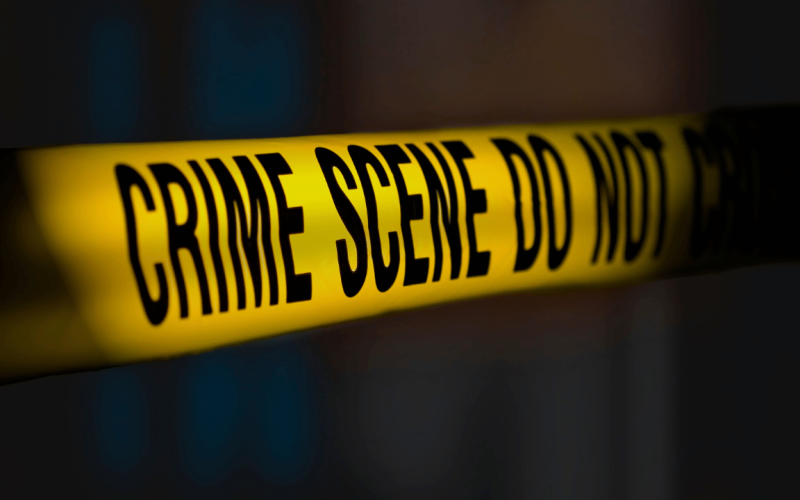Launching a crime scene cleanup company provides a valuable service to communities while offering stable income potential.
However, this unique business has many important considerations before getting started.
This comprehensive guide covers the basics of starting a crime scene cleaning business, from required certifications to marketing, equipment, and legal factors.
Read Also: How to Start a Profitable Laundromat Business
How to Begin a Crime Scene Cleanup Business
Follow these key steps to properly set up your crime scene cleanup business:
1. Get Specific Training and Certification
Extensive training on biohazard remediation, bloodborne pathogens, and crime scene protocols is necessary.
Seek out courses and certifications specific to the crime scene cleaning industry.
Top certifications include:
- Crime Scene Cleanup Technician (CSCT)
- Biohazard Cleanup Technician (BCT)
- Bloodborne Pathogen Cleanup (BBP)
- Hazardous Materials Transportation (HAZMAT)
Getting properly certified demonstrates you comply with all technical requirements and protocols for this sensitive work. Check your state for any additional licensing needed.
2. Understand Compliance Requirements
Various environmental, health, and transportation regulations apply to handling crime scene waste.
Ensure you will comply with laws including:
- EPA waste management rules
- OSHA worker safety protocols
- DOT hazardous materials transportation
- HIPAA privacy for victims
- Infectious disease handling guidelines
- Any state/local crime scene cleaning requirements
Consult attorneys and government agencies to ensure full compliance before operating.
Improper handling of crime scene cleanup can result in major fines or closure.
3. Invest in Specialized Equipment
Crime scene cleaning requires specialized personal protective equipment (PPE) and disinfecting tools to prevent exposure risks.
Typical equipment needs include:
- Biohazard suits, gloves, goggles, masks
- Chemical-resistant boots
- Trauma scene cleanup kits
- Medical grade disinfectants
- Brushes, scrapers, sprayers, power washers
- Heavy-duty body fluid/blood cleanup kits
- Biohazard waste disposal containers
- Truck or trailer for transporting equipment
Provide crews with proper safety gear and cleanup tools tested for crime scene-level bodily fluid remediation. This protects workers from contamination.
4. Create Detailed Cleanup Procedures
Establishing systematic cleanup procedures based on industry best practices ensures the safe, proper remediation of any crime scene.
Address elements like:
- Initial scene assessment and scope of work
- Securing and isolating the affected area
- Donning of PPE gear by workers
- Photographic documentation before cleanup
- Effective cleaning techniques for surfaces
- Proper handling and disposal of waste
- Post-cleanup decontamination and report
Test and refine your step-by-step procedures before taking on jobs. This protects your team, customers, and the public.
Read Also: 10 Best Accounting Software for Catering Businesses
5. Build a Roster of Skilled, Experienced Technicians
Hire technicians specifically experienced in crime scene cleaning to ensure the sensitive work is handled properly.
They must demonstrate:
- Relevant biohazard cleanup certifications
- Successful previous crime scene projects
- Bloodborne pathogen safety training
- Understanding of compliance protocols
- Ability to handle traumatic scenes
Check backgrounds thoroughly. Not everyone can perform this emotionally difficult work effectively. Offer ongoing training to keep staff skills sharp.
6. Develop Industry Partnerships
Partner with first responders and organizations involved in crime scene response:
- Police departments
- Ambulance services
- Fire departments
- Coroner and medical examiners
- Hazmat teams
- Victim advocacy nonprofits
Introduce your service to them and pursue being placed on call lists for major incidents requiring cleaning.
This provides professional references and referral sources as you start.
7. Create a Website and Online Presence
Develop a professional website that details your qualified crime scene cleaning services, training, and certifications.
This establishes legitimacy and trust when customers research options online after traumatic events.
Provide background on the business, steps to receive a quote, areas served, and bios on key team members.
List industry credentials prominently. Be discreet and compassionate in your messaging.
Read Also: How to Market Your Fireplace Installation Service (10+ Ideas to Get Customers)
8. Market Sensitively to Relevant Leads
Promote your crime scene cleaning business delicately but persistently to decision-makers.
Reach out to:
- Local police departments
- Healthcare facilities
- Fire departments
- Medical examiners
- Funeral homes
- Crime victim nonprofits
- Apartment complexes and property managers
- Senior living communities
Introduce your service through calls, meetings, and informational materials. Get added to referral lists. Run ads in places where leads congregate.
9. Offer fair, Transparent Pricing
Price services reasonably and transparently. Most crime scene cleanups cost $200 to $500 per hour based on the scale, risks, materials, and time involved.
Avoid appearing to take advantage of traumatic situations. Provide detailed estimates upfront so customers know what to expect.
They will look for reassurance of fair pricing after shocking events. Work sensitively to accommodate budgets.
10. Arrange Insurance Coverage
Secure adequate general liability insurance, professional liability insurance, commercial auto coverage, and biohazard/contamination coverage.
Give insurers details on your training, compliance, equipment, and projected services.
Higher-risk work requires higher coverage limits to protect the business in the case of lawsuits or accidents.
11. Focus on Discretion and Privacy
Maintain utmost discretion, privacy, and respect when dealing with crime victims and their property.
Never disclose details publicly. Have technicians sign non-disclosure agreements. Follow HIPAA guidelines where applicable.
Leave scenes clean and discreetly without obviously advertising your business. Reassure clients their privacy will be protected during a traumatic time.
Conclusion
Launching a reputable crime scene cleanup business requires extensive technical skills, proper certifications, compassion for clients, and adherence to complex regulations.
With diligent preparations, appropriate equipment, rigorous training, and consultants guiding your compliance, a crime scene cleaning service provides essential closure and health protections while opening a steady business niche. Proceed sensitively and be prepared for challenging work.






![How To Start A Curtain Business - [Complete Guide]](https://www.saharamagnate.com/wp-content/uploads/2023/05/How-To-Start-A-Curtain-Business-380x220.png)